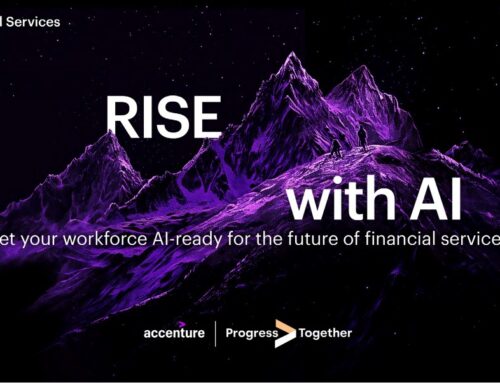By Man Wong, Co-Founder, CandidateX
While conversations about diversity in the workplace often revolve around gender and ethnicity, they frequently overlook a crucial dimension: socio-economic background. Socio-economic diversity—or social mobility—acts as a prism, refracting and illuminating disparities that cut across all other diversity categories. By understanding social mobility, we gain insight into the deep-rooted inequalities in access and opportunities that persist in our society and workplaces.
Recent data from Progress Together, encompassing 149,111 employees across 25 member firms, has shed light on the significant underrepresentation of individuals from lower socio-economic backgrounds in senior roles within the UK financial services industry. Artificial Intelligence (AI) emerges as powerful tools that, when used responsibly, presents a unique opportunity to close persistent gaps and create a truly inclusive financial services industry.
The Current State of Socio-Economic Diversity in Finance
The Progress Together report reveals stark disparities:
- On average, 50% of employees across all levels are from Higher Socio-economic Backgrounds, compared to 37% in the UK workforce.
- This disparity increases significantly at senior levels, with 57% of senior roles held by those from Higher Socio-economic Backgrounds.
- People from Lower Socio-economic Backgrounds take, on average, 15% longer (1.3 years) to progress from middle to senior roles.
- A “double-disadvantage” exists for females from Lower Socio-economic Backgrounds, who take 21% longer to progress to senior roles compared to their counterparts from Higher Socio-economic Backgrounds.
These findings underscore the urgent need for action. The financial services sector, which contributes £275 billion to the UK’s gross value added (GVA), plays a vital role in shaping our society. Ensuring diverse leadership is not just a matter of fairness, but also of economic resilience and innovation.
AI: A Game-Changer in Addressing Disparities
Artificial Intelligence could stand as a powerful ally in achieving greater socio-economic diversity in financial services. Its capabilities extend far beyond simple automation, instead offering transformative solutions to long-standing challenges in the industry.
By leveraging AI-powered tools, firms can significantly reduce unconscious bias in hiring processes. These tools sync with trends to move away from Experience-centric hiring processes, moving instead with Skills-Based Hiring.These systems focus on skills and potential rather than background or connections, opening doors for talented individuals who might otherwise be overlooked. Moreover, AI can shed light on career progression patterns, highlighting areas where individuals from lower socio-economic backgrounds may face barriers, thus enabling targeted interventions.
The power of AI in this context goes beyond identifying problems; it also helps in crafting solutions. By analysing data on successful career paths, AI can assist in designing targeted support programs for employees from diverse backgrounds. Furthermore, its predictive analytics capabilities allow firms to forecast the impact of various diversity initiatives, ensuring resources are focused on the most effective strategies.
The Progress Together report underscores the critical aspect of data in driving meaningful change towards greater socio-economic diversity especially in conjunction with AI. Transparency of data, what data is collected and its utilisation in feeding models for machine learning purposes, need to be rigorously understood and communicated to enable effective implementation. For financial services firms looking to leverage AI effectively, a comprehensive approach to data collection and evaluations is essential. For more details with data collection, refer to the Progress Together, Shaping Our Economy report.
Best Practices for Harnessing AI in Socio-Economic Diversity
To fully harness AI’s potential in promoting socio-economic diversity, financial services firms should adopt a set of best practices that ensure ethical and effective implementation.
First and foremost, the development of AI systems should be entrusted to diverse teams. This diversity in development helps identify and mitigate potential biases that might otherwise be built into the systems. Considering who it will impact will help steer how it should be used. Alongside this, transparency in AI algorithms is crucial. By making AI decision-making processes as clear as possible, firms allow for necessary scrutiny and continuous improvement.
While AI offers powerful capabilities, human oversight remains crucial. Maintaining human involvement in recruitment and progression processes provides the context and nuance that AI might miss, ensuring a balanced approach. Encourage risk and compliance advocating for regular audits of AI systems. This is essential to monitor for bias and make necessary adjustments. This ongoing vigilance ensures that as circumstances change, the AI systems evolve to maintain fairness and effectiveness.
In practical applications, AI can be leveraged to anonymise applications and also create and evaluate skills-based assessments whilst reducing bias. These assessments focus on a candidate’s abilities rather than their background, providing a more equitable basis for evaluation. Similarly, AI can analyse language in job descriptions and communications, ensuring they use inclusive language that appeals to a diverse range of candidates.
By embracing these practices, financial services firms can create a robust framework for using AI to promote socio-economic diversity, paving the way for a more inclusive and dynamic industry.
The Future of AI and Diversity in Financial Services
As AI technology continues to evolve, its potential to drive socio-economic diversity in financial services will only grow. We can anticipate more sophisticated AI systems that can identify and nurture talent from diverse backgrounds throughout their careers, not just at the point of recruitment.
However, realising this potential will require a commitment from companies to embrace AI responsibly and with a clear focus on promoting diversity. It will also necessitate collaboration between tech companies, financial institutions, and diversity experts to ensure that AI systems are designed and implemented in ways that truly level the playing field.
The financial services sector has a clear opportunity. By harnessing the power of AI to collect and analyse socio-economic diversity data, we have the opportunity to create a more inclusive, innovative, and resilient industry. The challenge now is for companies to seize this opportunity and lead the way in creating a truly diverse and representative financial sector.
Man Recommends
Progress Together Annual Report (2023): Shaping Our Economy




